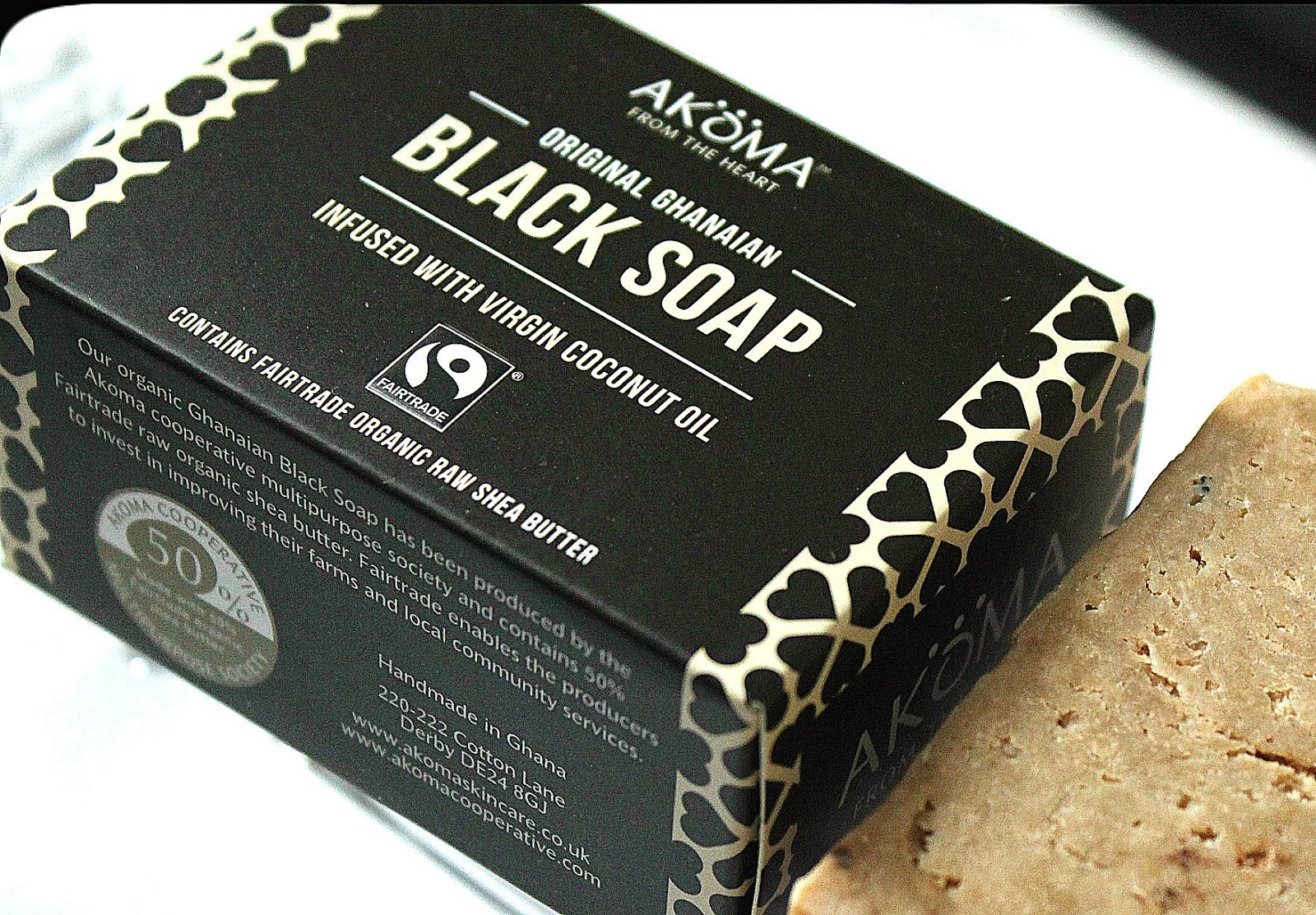How To Use Black Soap

Black soap is one of the healthiest soaps you can use on your face and body. Unlike many hard soap bars which contain harsh chemicals to help them retain their shape, genuine African black soap is made from natural ingredients packed with healing properties.
How Is Black Soap Made?
Black soap is traditionally made by women across West Africa to secret regional recipes, that vary between tribes. The main ingredients in our authentic Ghanaian black soap include cocoa pods, raw shea butter and virgin coconut oil. This special blend creates a fat rich, moisturising soap, which achieves a creamy lather and gently exfoliates to remove dead skin cells, dirt and oils, without drying out the skin. Let’s look at why these ingredients are so beneficial:
- Raw shea butter – The fatty acids found in natural shea butter act like the oils produced by our sebaceous glands to protect and moisturise our skin. Shea butter is rich in vitamins A & E, which help fight the signs of aging and support healthy skin and hair.
- Coconut Oil – The fatty acids found in coconut oil have antibacterial and anti-inflammatory properties and are ideal for locking moisture into your skin.
- Cocoa Pods – The cocoa pods are roasted to create a natural, gently exfoliating ash. This is then blended with water, oils and shea butter to produce the soap. The cocoa pod ash gives black soap its natural brown colour and soft smoky scent.
What Is Black Soap Used For?
For centuries, this cleansing soap has been used to heal and sooth a variety of skin conditions, including eczema, acne and psoriasis. Black soap is also used to even skin tone, improve the appearance of wrinkles, and to promote a youthful, glowing complexion.
If you have oilier skin, black soap can be used every day to balance oils and clear pores. If your skin is naturally dry, using the soap every few days will draw impurities to the surface and clear away dead cells, to leave you feeling renewed and refreshed. Black soap is highly effective at removing make up and regular use on all skin types can help you achieve firmer, smoother, blemish free skin.
How To Use Black Soap On Your Face & Body
If you’re using a soap bar, break off a tiny amount and add water to create a rich foaming lather. Apply the lather to your skin and wash away. To treat acne prone areas on thicker skin areas, like the top of your back, you can leave the lather for a few minutes prior to rinsing away.
To use liquid black soap, pump a small quantity onto your hand and apply to your skin. The foaming lather is perfect for use in the shower and for shaving, reducing irritation and bumps.
How To Use Black Soap On Your Hair
Both the bar and liquid can also be used on hair to relieve dry scalp conditions and black soap is often incorporated into treatments for alopecia to deliver healing nutrients to the scalp.
You can either create a lather in your hands and massage this into the scalp area or break off a small piece of soap and mix it with water in a container, for administering to the roots of your hair. By melting the soap in warm water, you can also add a few drops of your favourite essential oil to the mix. Once you have massaged your scalp, rinse and condition as normal.
Storing Your Soap
The soap itself is best stored in a soap dish or plastic bag, as contact with water will cause the soap to lose its structure.
Choosing The Right Black Soap For You
At Akoma, our authentic African black soap is made using a traditional regional recipe by women working at our cooperative in Ghana. Our Fairtrade organic black soap only contains natural ingredients, providing a chemical free, vegan friendly alternative to chemical cleansers.
We provide a choice of black soap products, perfect for use on your face, body and hair. Whether you’d prefer a natural, unscented soap with a woody, organic aroma, or a formula enriched with essential oils, get ready for glowing skin with Ghanaian black soap.


 Proud to be working with the Fairtrade Foundation
Proud to be working with the Fairtrade Foundation Made with organic ingredients and recipes
Made with organic ingredients and recipes Akoma Skincare is rated great on
Akoma Skincare is rated great on 